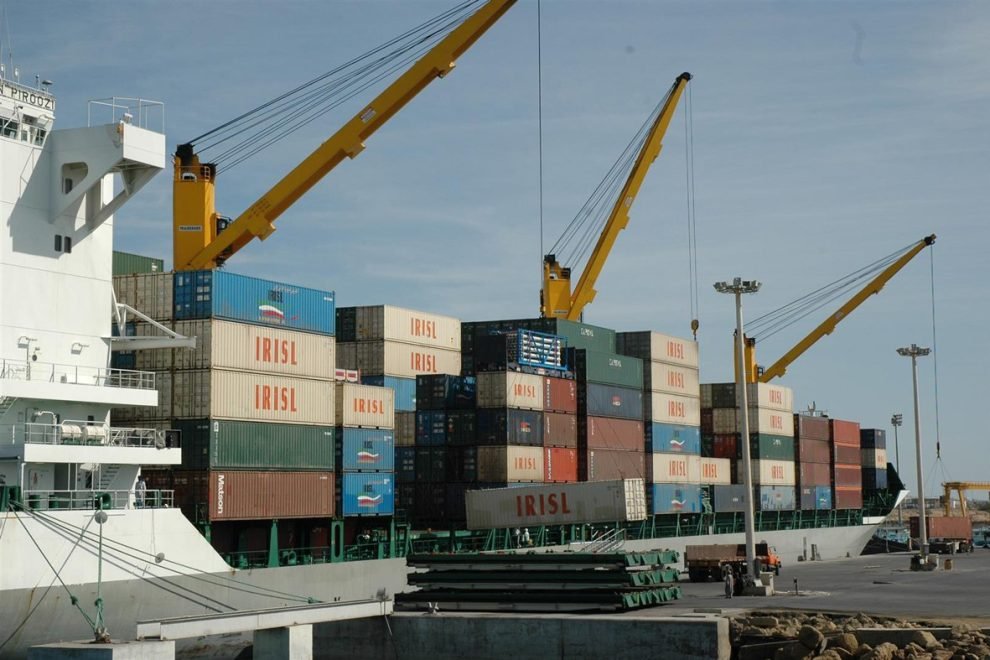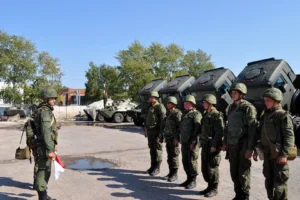Two important meetings over the past few days held in Mumbai and Samarkand have highlighted the potential and problems of connectivity projects that are emerging in India’s immediate neighbourhood involving Afghanistan and central Asia.
In the April 12-13 Joint Working Group Meeting of India and central Asia on Chabahar in Mumbai, India emphasised the need to respect “sovereignty and territorial integrity” while pushing for connectivity projects, and in the ministerial of neighbouring countries of Afghanistan in Samarkand, China expressed willingness to help Taliban-led Kabul join the Belt and Road Initiative. A spokesperson for Taliban however supported India’s drive for Chabahar.
“Afghanistan is a bridge between central, southeast Asia. We want trade to flourish among the regional countries. Chabahar can play an important role in promoting trade in the region. We are open to talk about trade, investment and mutual cooperation with the neighbouring and regional countries, including India. It benefits all,” said Suhail Shaheen, Head of Taliban Political Office. The two-day meeting in Mumbai came at a time when several countries in the region have been engaging the Taliban in infrastructure-related dialogue. The April 13 meeting in Samarkand drew participation from Pakistan’s Deputy Foreign Minister Hina Rabbani Khar and Chinese Foreign Minister Qin Gang. The Taliban did not participate in the meeting in Mumbai but Uzbek Foreign Minister Bakhtior Saidov met Taliban’s “foreign minister” Amir Khan Muttaqi on Friday in Samarkand. Mr. Muttaqi also addressed the ministerial which was attended by Sergey Lavrov of Russia and Amir Abdollahian of Iran.
Role of private sector
The first meeting of the India-Central Asia Joint Working Group (JWG) on Chabahar included Deputy Ministers and senior officials of Kazakhstan, Kyrgyz Republic, Tajikistan, Turkmenistan, Uzbekistan and India. Special invitees in the meeting were the country representative of the UN World Food Programme, Deputy Foreign Minister of Iran and an Afghan diplomat representing the pre-Taliban government in Kabul. According to a joint statement issued after the meeting, participants agreed on the role of the private sector in promoting connectivity and “reaffirmed that the connectivity initiatives should conform with international norms, rule of law, respect for international commitments, and is based on mutually agreed principles of sustainable connectivity, in transparency, broad participation, local priorities, financial sustainability and respect for sovereignty and territorial integrity of all countries.”
The focus on Chabahar has increased especially after India took several steps including an agreement that was signed with the World Food Programme on Thursday to supply wheat for the “Afghan people” through the Iranian port. Accordingly, the joint statement “appreciated the role played by Shahid Behesti Terminal, Chabahar Port in facilitating the shipments of humanitarian assistance for the Afghan people.”
Parallel to the JWG in Mumbai on Chabahar, Uzbekistan hosted the Meeting of the Foreign Ministers of Neighbouring Countries of Afghanistan after which Mr. Saidov met with Mr. Muttaqi. “He talked about the positive position of Uzbekistan in relation to Afghanistan. The Minister of Foreign Affairs of Uzbekistan said Afghanistan is a country of peace and stability,” Hafiz Zia Ahmad, Deputy Spokesman of Taliban’s “Foreign Ministry”, has said.
Following the meeting between Mr. Qin and Mr. Muttaqi, the Taliban said, “The Chinese Minister of Foreign Affairs said that his country is ready to help Afghanistan in many fields and Afghanistan’s security and stability are important to China. He also said China is ready to help Afghanistan join the Belt and Road Project.” The two also discussed expansion of China’s trade with Afghanistan and opening of “new air corridors” with Kabul. The Taliban appreciated China’s policy towards Afghanistan saying that Beijing’s policy “respected Afghanistan’s independence, national sovereignty, territorial integrity and religious and cultural choices.” India has consistently opposed the Belt and Road Initiative’s CPEC project as it violates India’s sovereignty by passing through Pakistan Occupied Kashmir.
Source : The Hindu












